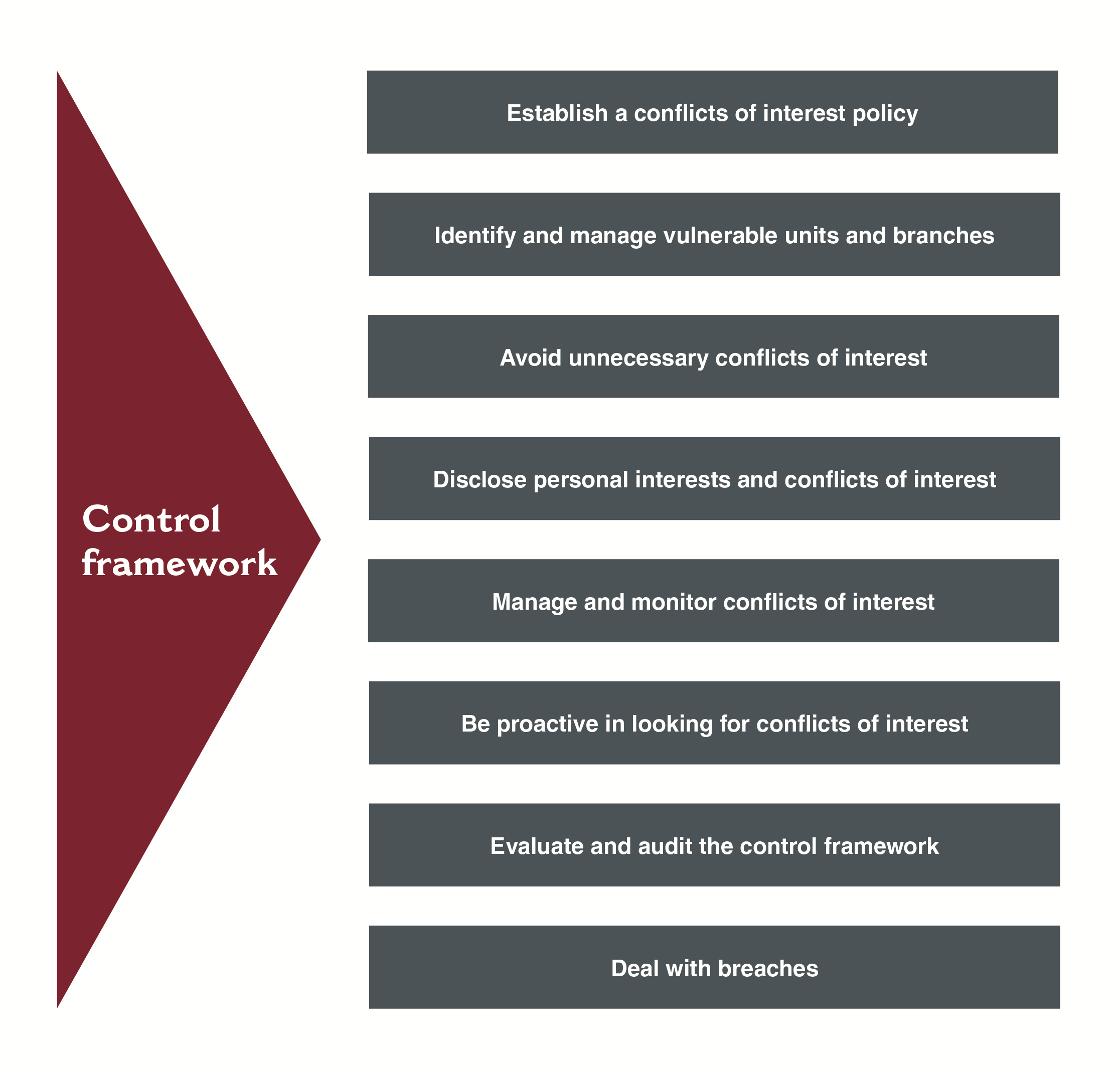Conflicts of interest
Citizens rightly expect that public officials, or their close connections and associates, should never be in a position to obtain an undue personal benefit as a result of the public official doing their job. This reflects the view that public office is held for the public good, not the purposes or benefits of the officeholder.
Additional guidance and information can be found in Managing conflicts of interest in the NSW public sector, and by viewing the ICAC's video on What is a conflict of interest?
Conflicts of interest FAQs for managers and public officials, and a sample policy are also available:
A conflict of interest exists when a reasonable person might perceive that a public official’s personal interest(s) could be favoured over their public duties.
There are four elements to consider when determining whether a conflict of interest exists.
- Does the official have a personal interest?
- Does the official have a public duty?
- Is there a connection between the personal interest and the public duty?
- Could a reasonable person perceive that the personal interest might be favoured?
Conflicts of interest do not, in themselves, usually constitute corrupt conduct. Corrupt conduct can, however, arise when a conflict of interest is concealed, understated, mismanaged or abused.
Experience also shows that many, if not most, forms of corrupt conduct involve a conflict of interest. Examples of conduct that could be corrupt include:
- concealing or failing to disclose a conflict of interest
- making false or understated declarations about a conflict of interest
- favouring a personal interest over public duty
- improperly influencing others to favour a personal interest
- misusing resources in order to favour a personal interest.
The ICAC recommends that agencies manage conflicts of interest in accordance with the figure shown below.

Updated June 2021.